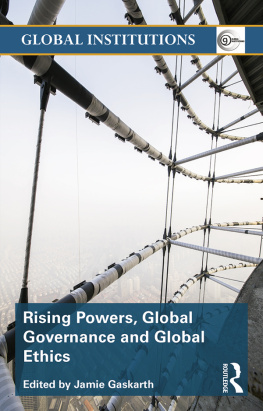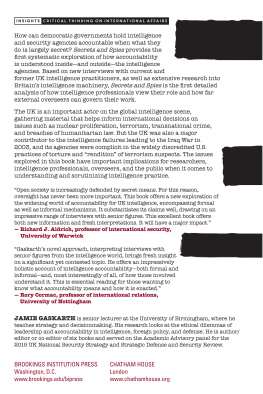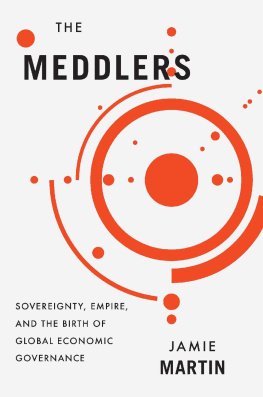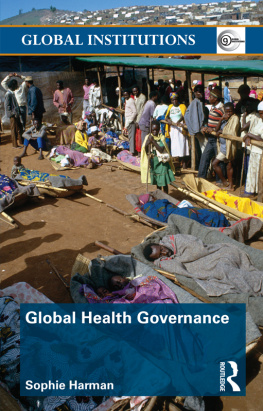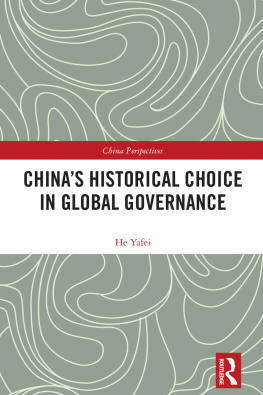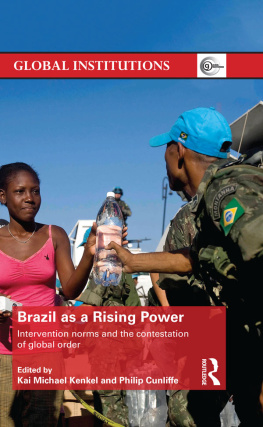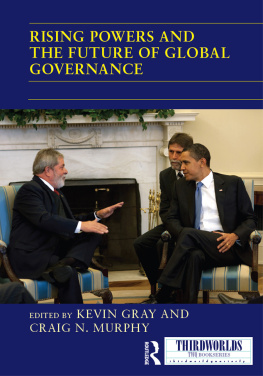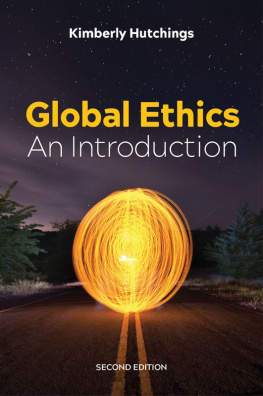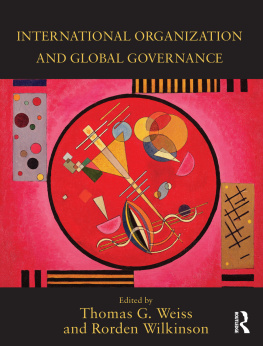Rising powers, global governance, and global ethics
Two of the dominant themes of international relations scholarship over the last decade have been global governance and rising powers. Underlying both discussions are profound ethical questions about how the world should be ordered, who is responsible for addressing global problems, how change can be managed, and how global governance can be made to work for peoples in developing as well as developed states. Yet, these are often not addressed or only briefly mentioned as ethical dilemmas by commentators.
This book seeks to ask critical and profound questions about what relative shifts in power among states might mean for the ethics and practice of global governance. Three key questions are addressed throughout the volume:
Who is rising and how?
How does this impact on global governance?
What are the implications of these developments for global ethics?
Through these questions, some of the key academics in the field explore how far debates over global ethics are really between competing visions of how international society should be governed, as opposed to tensions within the same broad paradigm. By examining how governance works in practice across the Middle East, Africa, and Asia, the contributors to this volume seek to critique the way global governance discourse masks the exercise of power by elites and states, both developed and rising.
This work will be essential reading for all those with an interest in the future of international relations and global governance.
Jamie Gaskarth is Associate Professor (Senior Lecturer) in International Relations in the School of Government at Plymouth University. He is an elected Trustee of the British International Studies Association (BISA) and Convenor of BISAs Foreign Policy Working Group.
Global Institutions
Edited by Thomas G. Weiss
The CUNY Graduate Center, New York, USA and Rorden Wilkinson
University of Sussex, Brighton, UK
About the series
The Global Institutions Series provides cutting-edge books about many aspects of what we know as global governance. It emerges from our shared frustrations with the state of available knowledgeelectronic and print-wise, for research and teachingin the area. The series is designed as a resource for those interested in exploring issues of international organization and global governance. And since the first volumes appeared in 2005, we have taken significant strides toward filling conceptual gaps.
The series consists of three related streams distinguished by their blue, red, and green covers. The blue volumes, comprising the majority of the books in the series, provide user-friendly and short (usually no more than 50,000 words) but authoritative guides to major global and regional organizations, as well as key issues in the global governance of security, the environment, human rights, poverty, and humanitarian action among others. The books with red covers are designed to present original research and serve as extended and more specialized treatments of issues pertinent for advancing understanding about global governance. And the volumes with green coversthe most recent departure in the seriesare comprehensive and accessible accounts of the major theoretical approaches to global governance and international organization.
The books in each of the streams are written by experts in the field, ranging from the most senior and respected authors to first-rate scholars at the beginning of their careers. In combination, the three components of the seriesblue, red, and greenserve as key resources for faculty, students, and practitioners alike. The works in the blue and green streams have value as core and complementary readings in courses on, among other things, international organization, global governance, international law, international relations, and international political economy; the red volumes allow further reflection and investigation in these and related areas.
The books in the series also provide a segue to the foundation volume that offers the most comprehensive textbook treatment available dealing with all the major issues, approaches, institutions, and actors in contemporary global governanceour edited work International Organization and Global Governance (2014)a volume to which many of the authors in the series have contributed essays.
Understanding global governancepast, present, and futureis far from a finished journey. The books in this series nonetheless represent significant steps toward a better way of conceiving contemporary problems and issues as well as, hopefully, doing something to improve world order. We value the feedback from our readers and their role in helping shape the on-going development of the series.
A complete list of titles appears at the end of this book. The most recent titles in the series are:
Wartime Origins and the Future United Nations (2015)
edited by Dan Plesch and Thomas G. Weiss
International Judicial Institutions (2nd edition, 2015)
by Richard J. Goldstone and Adam M. Smith
The NGO Challenge for International Relations Theory (2014)
edited by William E. DeMars and Dennis Dijkzeul
21st Century Democracy Promotion in the Americas (2014)
by Jorge Heine and Brigitte Weiffen
BRICS and Coexistence (2014)
edited by Cedric de Coning, Thomas Mandrup, and Liselotte Odgaard
IBSA (2014)
by Oliver Stuenkel
Making Global Institutions Work (2014)
edited by Kate Brennan
Global Institutions
Edited by Thomas G. Weiss
The CUNY Graduate Center, New York, USA and Rorden Wilkinson
University of Sussex, Brighton, UK
About the series
The Global Institutions Series provides cutting-edge books about many aspects of what we know as global governance. It emerges from our shared frustrations with the state of available knowledgeelectronic and print-wise, for research and teachingin the area. The series is designed as a resource for those interested in exploring issues of international organization and global governance. And since the first volumes appeared in 2005, we have taken significant strides toward filling conceptual gaps.
The series consists of three related streams distinguished by their blue, red, and green covers. The blue volumes, comprising the majority of the books in the series, provide user-friendly and short (usually no more than 50,000 words) but authoritative guides to major global and regional organizations, as well as key issues in the global governance of security, the environment, human rights, poverty, and humanitarian action among others. The books with red covers are designed to present original research and serve as extended and more specialized treatments of issues pertinent for advancing understanding about global governance. And the volumes with green coversthe most recent departure in the seriesare comprehensive and accessible accounts of the major theoretical approaches to global governance and international organization.
The books in each of the streams are written by experts in the field, ranging from the most senior and respected authors to first-rate scholars at the beginning of their careers. In combination, the three components of the seriesblue, red, and greenserve as key resources for faculty, students, and practitioners alike. The works in the blue and green streams have value as core and complementary readings in courses on, among other things, international organization, global governance, international law, international relations, and international political economy; the red volumes allow further reflection and investigation in these and related areas.

